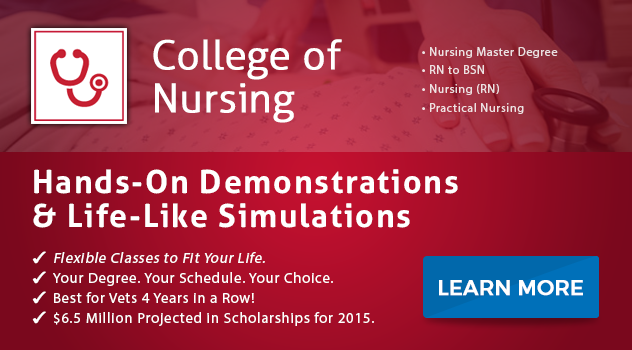What is so Important about Nursing?
Today, nurses have more authority, opportunities, and resources than ever before. A career in nursing offers you the flexibility you need to balance between family life and your career, and still leaves you plenty of room for advancement. Additionally, during a time of economic uncertainty and nationwide unemployment, job forecasts have consistently identified nursing as a sector that is immune to a recession.
The recent technological advances, focus on preventive care, and the increasing population of aging baby boomers has elicited the rapid growth in nursing. Let's take a look at the nursing profession and why it is so vital in today's society.
Why are Nurses Important?
When patients visit hospitals, they tend to imagine a hospital as a building filled with surgeons and doctors who manage the entire facility. People overlook the most valuable backbone of any hospital: nurses. Doctors and nurses are equally important in a hospital setting. Although they perform some different tasks, their responsibilities tend to overlap.
Doctors are responsible for diagnosing and treating illnesses while nurses are responsible for monitoring patients on a more regular basis. Other nursing duties include maintaining patient records, tending to wounds and the needs of patients, administering medication, and providing quality care for patients among other assignments.
During interactions with patients, nurses create the positive image of the hospital. Their attentiveness, proper care and other services that nurses provide are what patients mostly resonate. Without nurses, surgeons, doctors, and other hospital staff would be overburdened, and patients wouldn’t receive the care and attention they need. The dedication nurses show towards their patients coupled up with their knowledge and invaluable experience makes nurses important in the healthcare industry.
What do Nurses do and How are they Involved in Medicine?
According to the American Nurses Association, the common duties and responsibilities of nurses include:
- Providing education, counseling and health promotions
- Coordinating care and collaborating with other professionals in the healthcare facility
- Conducting physical exams and noting down patient health histories
- Providing wound care, administering medications, and providing other personalized interventions
- Directing and supervising medical care that is delivered by other healthcare professionals such as licensed practical nurses
- Interpreting patient information and making important decisions about the correct course of action
Nurses can work in different healthcare settings such as hospitals, medical offices, nursing homes, community health centers, ambulatory care centers, retail clinics, and schools. They can also work in locations such as camps, prisons, and sporting events.
Responsibilities of Nurses in Hospitals
The highest numbers of nurses work in hospitals. According to the BLS, 61 percent of registered nurses work in state, local and private hospitals. Registered nurses working in hospitals perform different tasks. After obtaining the expected level of education and qualifications, they can specialize in specific areas. Some of the possible areas of specialization include:
Critical care nurses: These nurses have advanced knowledge and skills and they provide intensive therapy, perform assessments, and operate life support systems for patients with acute injuries or illnesses.
Cardiac nurses: According to a recent study, one of the leading causes of deaths in the U.S. is heart disease. As a cardiac nurse, you will help patients to recover from heart surgery and provide treatment for all types of heart conditions.
Preoperative nurses: Also known as surgical or operating room nurses, these professionals provide care for patients before and after surgery. They help maintain a sterile environment during surgery, carefully monitor patients during surgery and help them prepare and recover from surgery.
Neonatology nurses: These nurses care for critically ill and premature newborns in the NICU (neonatal intensive care unit) of hospitals. Some of their responsibilities include recording the status of newborns and their progress, administering medications, educating new mothers and answering questions that they may have about providing care for their babies.
What Kind of Education do you need to become a Nurse?
There are different educational paths that you can take to become an RN. Becoming an RN requires you to complete a postsecondary program; it can be an associate degree or a bachelor’s degree and take the needed tests to become a fully-fledged registered nurse.
As an aspiring nurse, you will learn about topics like anatomy and human development, and you will also gain supervised clinical experience. To work as a nurse, you will also have to be licensed in your state which requires you to pass an exam.
Many registered nurses enter the nursing profession after earning an ADN (Associate Degree in Nursing). An ADN program usually combines classroom instruction with hands-on experience and training in clinics, hospitals or other healthcare facilities.
Thinking About Earning an ADN?
If you want to become a nurse, there are several ways you can get to where you're going. One of them is through earning an Associate of Applied Science in Nursing Degree. ECPI University offers this program, along with several other nursing degrees. For more information about this exciting, accelerated program, connect with a friendly admissions advisor today.
It could be the Best Decision You Ever Make!
DISCLAIMER – ECPI University makes no claim, warranty, or guarantee as to actual employability or earning potential to current, past or future students or graduates of any educational program we offer. The ECPI University website is published for informational purposes only. Every effort is made to ensure the accuracy of information contained on the ECPI.edu domain; however, no warranty of accuracy is made. No contractual rights, either expressed or implied, are created by its content.
Gainful Employment Information – Nursing (ADN) - Associate’s
For more information about ECPI University or any of our programs click here: http://www.ecpi.edu/ or http://ow.ly/Ca1ya.




